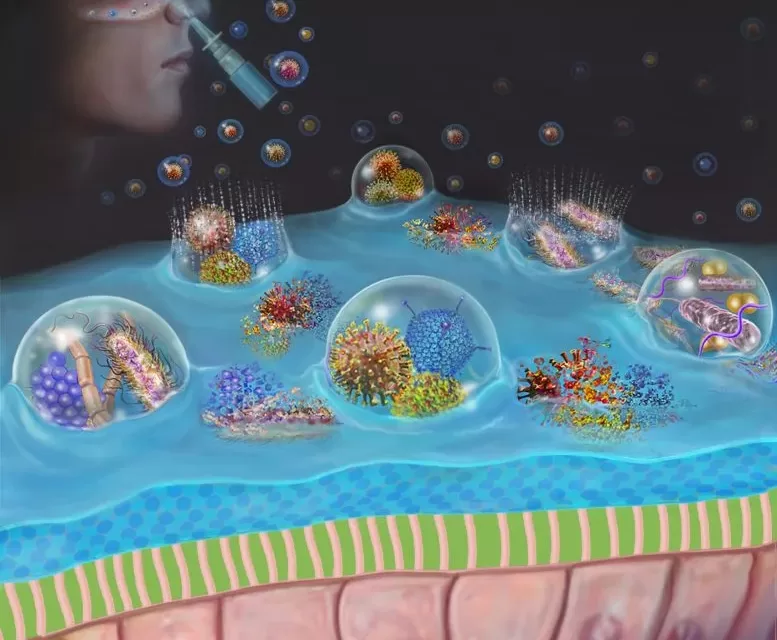Brigham and Women’s Hospital Team Develops Groundbreaking Nasal Spray for Respiratory Infection Prevention
Researchers at Brigham and Women’s Hospital have announced a significant breakthrough in the fight against respiratory infections with the development of a novel nasal spray designed to block a wide range of pathogens, including COVID-19, influenza, and common cold viruses. Dubbed the Pathogen Capture and Neutralizing Spray (PCANS), this innovative product has demonstrated promising results in laboratory and animal studies, potentially marking a pivotal advancement in public health if validated in human trials.
The findings were published in the journal Advanced Materials, showcasing the research team’s creative approach to combating respiratory pathogens. Co-senior author Dr. Jeffrey Karp highlighted the ongoing threat posed by respiratory viruses, remarking on the persistent challenges of seasonal flu and the lingering impacts of COVID-19. “The COVID pandemic showed us what respiratory pathogens can do to humanity in a very short time. That threat hasn’t gone away,” he stated.
Understanding the Spread of Respiratory Infections
Respiratory infections like influenza and COVID-19 account for thousands of deaths and numerous severe illness cases annually. While vaccines provide some level of protection, they are not foolproof; vaccinated individuals can still contract and spread infections. Furthermore, masks, although effective, are often improperly used, limiting their effectiveness.
“The need for new, additional ways to protect ourselves and reduce disease transmission is clear,” Dr. Karp emphasized. Most viruses enter the body through the nose, spreading when infected individuals release tiny droplets containing pathogens into the air, which healthy individuals may inhale, leading to infection.
The Mechanism Behind PCANS
The research team aimed to create a nasal spray that offers protection against airborne illnesses. PCANS is formulated from ingredients listed in the FDA’s Inactive Ingredient Database, along with compounds deemed Generally Recognized as Safe (GRAS). This drug-free spray works by forming a gel-like matrix that captures respiratory droplets, immobilizing and neutralizing the pathogens to prevent infection.
In laboratory settings, PCANS showcased remarkable efficacy. It captured twice as many droplets as mucus alone in a 3D-printed replica of a human nose. Primary author Dr. John Joseph noted that the gel formed by PCANS significantly enhances its mechanical strength, effectively blocking and neutralizing nearly 100% of the tested viruses and bacteria, including SARS-CoV-2, influenza, and adenovirus.
Promising Animal Trials
Further experiments involving mice demonstrated that a single dose of PCANS could effectively prevent infection from a lethal strain of the influenza virus. The results indicated an astonishing 99.99% reduction in virus levels in the lungs of treated mice, with normal inflammatory responses observed in the PCANS group.
Co-senior author Dr. Yohannes Tesfaigzi remarked, “The formulation’s ability to inactivate a broad spectrum of pathogens demonstrates its high effectiveness. Prophylactic treatment with PCANS showed exceptional efficacy in our rigorous mouse model study.”
Future Directions
While the current study has not yet progressed to human trials, it establishes a solid foundation for further research into PCANS’s potential in combating respiratory infections. The research team is also exploring the possibility of using PCANS to block allergens, which could lead to new strategies for allergy relief.
As the world continues to face challenges posed by respiratory pathogens, the development of PCANS signifies a promising step toward enhancing public health and safety. The team at Brigham and Women’s Hospital remains optimistic about the implications of their findings and the potential of PCANS in the ongoing fight against infectious diseases.











